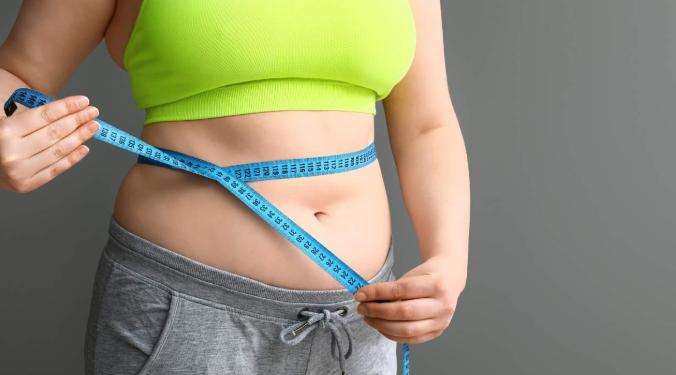
Hormones and Weight Gain: Why You’re Not Losing Weight
Have you tried following all the weight loss advice from doctors but you still cannot lose weight? Or worse yet, do you lose 5 pounds within a short time only to gain 8 more after a few weeks?
These problems are common, especially among women after 50. They are part of weight gain symptoms from hormone imbalance. Usually, you find that nutritional and workout regimens that work with other people do not work with you.
Hormones regulate almost all activities in our bodies. When some hormones – including insulin, estrogen, cortisol, and adiponectin – are in excess or insufficient amounts, the body will have hormonal and weight loss problems.
Leptin and Too Much Sugar
Leptin is the hormone that says to you, ‘you are full, stop eating.’ However, when you take too much sugar, especially fructose from fruits, your body becomes awash with leptin. With so much leptin, the body becomes resistant to its messages, and you eat in excess and grow fat. The excess fructose is converted to fats and stored in your belly, liver, or any other part of the body under the skin.
Cortisol and Weight Gain
Metabolism and weight gain are related. When you are stressed, cortisol is produced in excess. This hormone increases your metabolism prompting conversion of proteins in muscles to sugar and fat, sugar is used by but fats are stored on your belly. Even in the late stage of stress where low cortisol is released, fats and weight still put on because fat burning is slow or blocked.
Besides stress, cortisol might be released in excess if you take coffee in high amounts daily. For long term stress when the adrenal gland is exhausted and can’t make enough cortisol, coffee will push the adrenal gland to work harder. To rectify the problem, you will need to take less coffee and stay out of stressful situations.
Insulin and weight gain
Insulin is often called the storage hormone. The right amount of insulin (optimal level) will reduce blood sugar by sending the sugar to muscles to provide energy, some glucose goes to the liver and is stored as glycogen, and hardly any glucose is converted to fats. However, when the level of insulin produced is high, or the body becomes insensitive to insulin, there are high levels of glucose in the blood, and a higher amount is converted to fat and stored under the skin mostly around your belly area and inside stomach as visceral fat, love handles and back area (apple or android type obesity with high incidence of metabolic syndromes).
Estrogen and Weight Gain
Estrogen is the hormone that makes women who they are. In a healthy person, estrogen is produced in the right amounts and can help boost insulin which manages blood sugar.
When estrogen is produced in less than optimal amounts, it causes insulin insensitivity. It strains the pancreas cells to make more insulin, and more insulin means fat storing. However, estrogen production in excess also cause weight gain in both men and women especially in upper thigh and buttock area (gynecoid or pear type obesity)
Usually, exposure to toxins (xenobiotics), such as herbicides, will cause an increase in estrogen levels in the body.
Common symptoms of hormones and weight gain after 50 in women are a result of low estrogen. This is usually corrected through the use of bio-identical hormone treatment as done at LyfeMedical, Rawai, Phuket in Thailand.
Testosterone, Growth hormones, Thyroid and Weight Gain
The thyroid is another hormone which, when produced in below optimal amount, causes the body to gain weight by slowing down metabolic rate and increasing fat deposited under the skin.
Growth hormones help burn stored fat for energy and building of lean muscle mass. Estrogen and testosterone are two hormones whose imbalance causes weight gain.
Testosterone is the main insulin modulator in men and can support insulin sensitivity when produced in optimal amounts. The increased level of estrogen overwhelms the testosterone in your body causes insulin resistance. The strained testosterone, combined with high levels of estrogen, leads to weight gain in the stomach, breast and buttock areas.
Address Hormone Imbalances Today
If you have Thyroid effect weight gain, or you have tried all other means of losing weight in vain, consider addressing hormonal imbalance. If natural remedies for weight gain due to hormonal imbalance, such as a change in diet and environment, do not balance your hormone levels, consider bio-identical hormone treatment. Learn how to start bio-identical hormone – check-up and personalize by prescription – and about bio-identical safety to get started.
Lyfe Medical Wellness offers several HRT options including our custom-created bioidentical hormone replacement therapy (BHRT). Typically this is via injections, oral and skin creams. It’s important to meet with our friendly and experienced doctor for a complete assessment and diagnosis before a treatment plan is confirmed.
If you are ready to start treatment, or have any questions, contact LyfeMedical today or visit our new branch in Laguna, Phuket.




